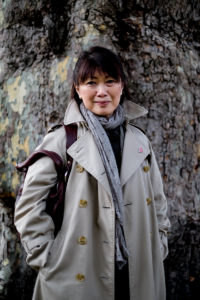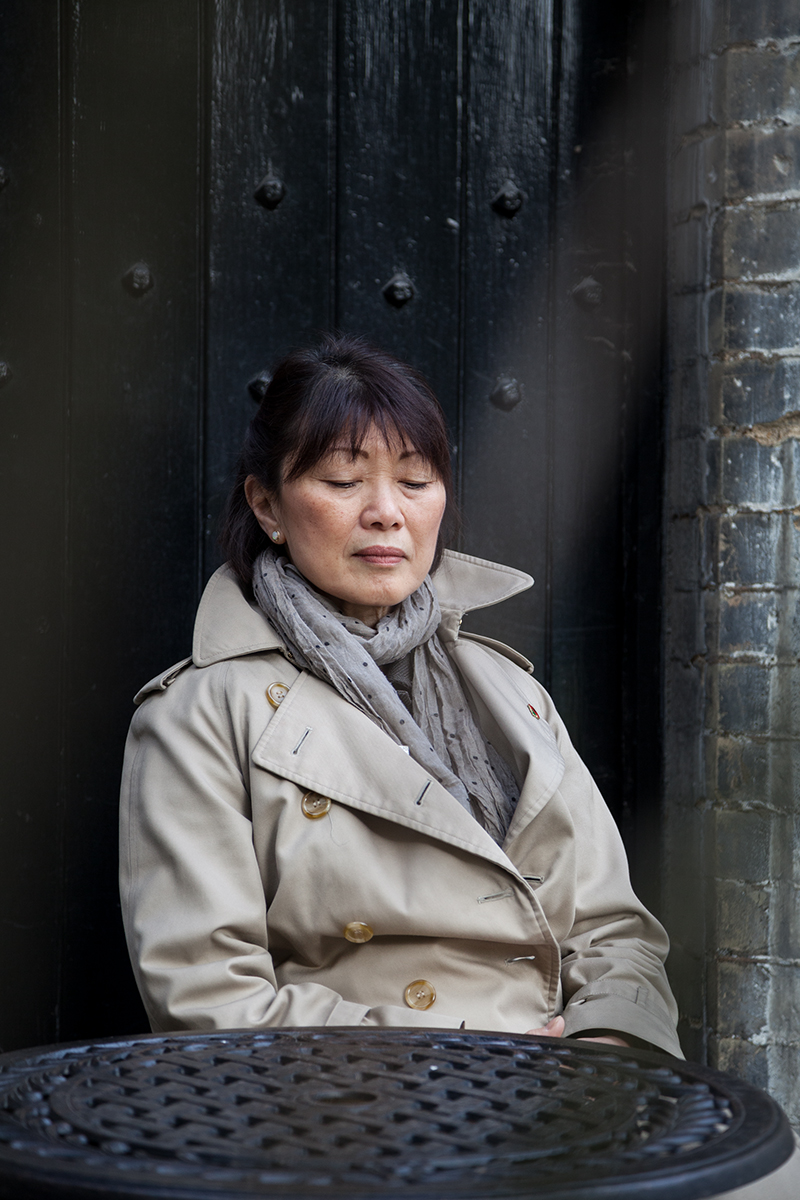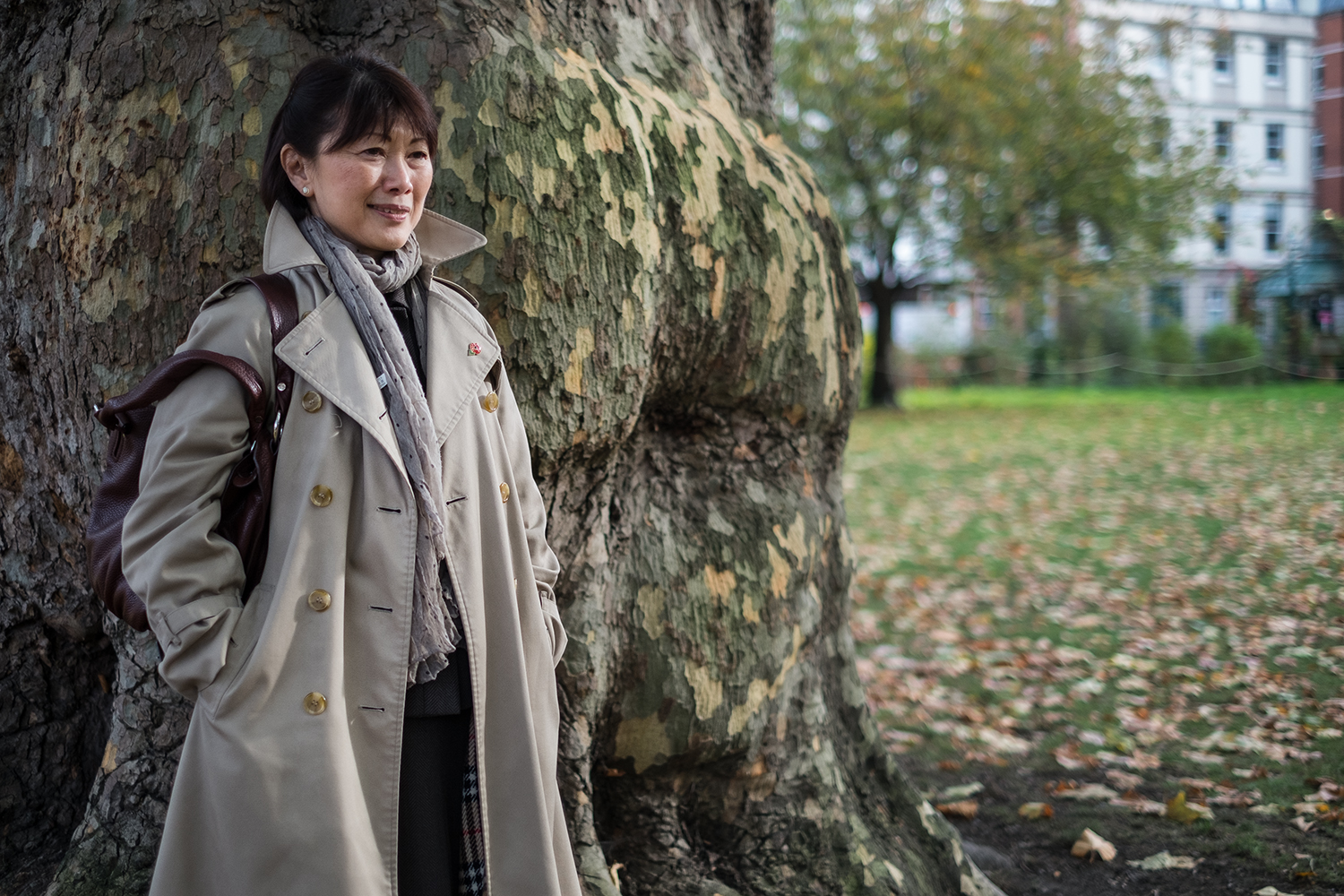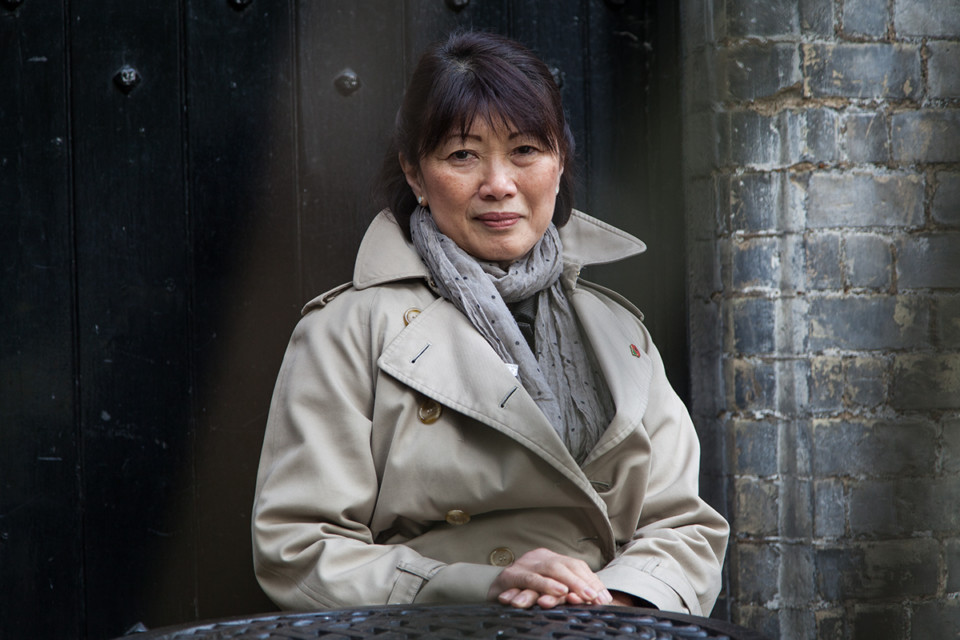Y U A H A W
London | 2018

Y U A H A W
Age — 65
Love life — Single
Profession — Retired, but still works as, among other things, a consultant, a non-executive director at a hospital, and a volunteer at Museum of London and The Charterhouse. Used to work in the Health service and in medical sales and marketing.
Years in London — 31 years since 1972 (lived abroad for 13 years)
Location — The Charterhouse
T H E L O N D O N S T O R I E S
‘I THINK I AM
A LITTLE
BIT CRAZY’

- What makes you really happy?
“I love meeting people. I love talking to them, learning from them and exchanging ideas. Because of everything I do in my life, there is a huge conversation range and that is a bit that I really enjoy. For example, the people I meet when I am peddling in a dragon race are all in their twenties and early thirties, but when I volunteer at The Charterhouse, most of the tourists are older and very interesting to talk to.”
- What makes you different than other people?
“If I compare myself to some other women of my age, I’m different because I’m constantly challenging myself, either intellectually, mentally or physically. I think some women my age reach a stage where they are comfortable where they are, and that’s it. I was quite definite that I was not going to sit at home and just watch tv or only have coffee or lunch with friends when I’d retire. It’s lovely meeting them, but you are not extending your outlook. They want to share how their children are doing, which is wonderful, but I can’t reciprocate. And of course to them, what I’m doing with my life is a bit different, because they’re not doing any of it. I need to continue to meet lots of different people from different walks of life. The key thing is, as you get older in years, you have to make sure that your brain doesn’t get older in years. So I wanted to do something more intellectually stimulating. But I am also very well known for my lazy Sunday afternoons.”
- What is your best personality trait?
“I think I’m a little bit crazy. And I do consider that a good thing. People ask me: ‘Wow, why are you doing all those different things?’ I always answer: ‘Because I’m crazy?’ I have five siblings and my mother always said I was the one that was different. I was the one who went away and travelled and worked all over the world. But my mum was very encouraging, she thought it was wonderful that her daughter did that and she would come and visit me. I think my mother, who was born in 1922 in a very traditional Chinese household, had a little bit of a rebellious streak in her herself that she couldn’t display, but she allowed me to have that freedom. I think I became this adventurous because of the classes in ancient history and geography the Italian nuns gave at the convent school before I came to England. The classes about ancient history gave me my love of history and during geography I dreamed of the exotic places they talked about, like the train across the Andes and Lake Titicaca. The school aimed at delivering an education adequate for women who would marry and have children.”

- What is your biggest struggle in life?
“Getting over losing my mother. She passed away three years ago. I took care of my mother in the last years of her life. I try to take my life onwards, because my mother wouldn’t have wanted me not to move on. I still miss her, but I can feel that it’s getting better. When I think ‘she would have loved this’, it’s filled with fondness rather than regret.” - What is your biggest life lesson?
“Don’t take anything for granted, don’t assume that the comfortable life you have now will always be there. Prepare yourself for taking the rough road. Tomorrow it could change, and if it changes, what would you do? I try to build my resilience to be able to meet those things. My mother always said: if you want to do something, do it. If it goes wrong, we will always be here to support you. And that is what I keep in mind, but I am also a little bit risk-averse. If I am really going to do something, I try to do it in a way that it won’t be a burden to my family. I think that comes from being a single person for so long, you start trying to cover all bases for yourself. But I know my family will always be there.” - What is your biggest disappointment in life?
“I always thought that I would end up married with children. And of course my mother, being a very traditional Chinese woman, would have wanted that, so she would be encouraging me. But the right person just never came. At some point I thought that I might actually share my life with somebody. But he turned out to be not the person I thought he was, fortunately before it got too advanced. I guess perhaps that coloured how I look at men now. I not only need someone who can be complementary and stimulates me, but I also think: are you trustworthy? It’s a long time ago, but that thought is still somewhere in the back of my mind, which is probably not a great thing.”
- What is your biggest dream or ultimate goal in life?
“Travel! I have a huge list of places I want to go to. I want to go to Bhutan, I would love to do the track around Everest Base Camp, I want to go to South America, go down to Patagonia. So I’ve got a huge, huge list. On the top of my list is the train journey across the Andes to Lake Titicaca. It will probably take me three months.” - Is there something you regret in life?
“I can truthfully say I have no regrets. I don’t regret not staying with that guy, because the life I’ve lived allowed me to do and learn so much. I’ve met really interesting people and it allowed me to look after my mother when the time came. So I am really lucky. But I’d hate to think that I’d become insular, that I’d only be thinking about myself and had lost my compassion for other people. I hope I don’t become a selfish person. I hope I can still be involved in the lives of my family and helping other people.” - What is your biggest fear?
“I would like to be granted a good death. When I say that, I mean one that is not drawn out and involves suffering. When I’m about to die, I would like to be able to die quickly, with minimal suffering, with minimal worry for my family. I’m actually a big supporter of the idea that ‒ in case I had a disease and I continued to live with a poor quality of life, so that my family would have to worry about my care ‒ I would love to be able to say I can end it. If Britain doesn’t change the law, I would go to another country.” - What does London mean to you?
“This is where my friends are. It’s where I can indulge in my love of opera, ballet, the museums, the art galleries. There is so much on offer, I can just choose where and when I go to the theatre. But it is too busy. If you compare 1972, when I came to London, to now, it’s horrendous. It’s so crowded and people are getting ruder, bad-tempered and intolerant. It used to be more agreeable. You all suffer the same, therefore you would try to make it easier for each other if you could. Perhaps that is how you can recognize a typical Londoner: it’s the persistent one who doesn’t want to leave the city.”
Photos by Gordon Roland Peden

